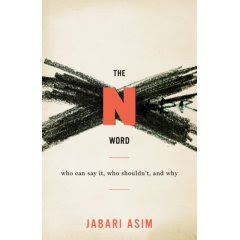
from Salon.com
Who gets to use the N word?
by Mark Anthony Neal
Author Jabari Asim talks about the history of the loaded term, when its use is valid and why Don Imus' firing was justified.
April 25, 2007 When faced with increasing criticism for his "nappy-headed hos" commentary, Don Imus deftly flipped the conversation, suggesting that he found inspiration from the world of hip-hop. The conversation quickly and disingenuously turned into a debate about the role of hip-hop in spreading sexist and vulgar language, as if scripted by the folks at CBS Radio and NBC. Central to this discussion was the sense that a double standard exists where black male rappers are permitted to call women "bitches" and "hos" and are subject to little scrutiny while old white men like Imus face a public crucifixion for what some deem a bad joke. Author and longtime Washington Post Book World editor Jabari Asim had heard all of these arguments before in relation to the use of the word "nigger" in American popular culture. In his new book, "The N Word: Who Can Say It, Who Shouldn't, and Why," he places the focus squarely on American society and the undercurrents of white supremacy in our culture. Conceived long before the Imus story broke, "The N Word" provides a needed perspective on the controversy. Asim spoke to Salon about the use of the word, from "Uncle Tom's Cabin" to N.W.A. to Imus, and set some boundaries for who can say it -- and where.
One of the things I thought about while reading "The N-Word" was Ralph Ellison. In his review of Leroi Jones' [Amiri Baraka] now classic "Blues People," Ellison quipped that the "tremendous burden of sociology that Jones would place upon the body of music is enough to give even the blues the blues." In that same vein, the amount of historical research and literary history that you present throughout "The N-Word" fundamentally demystifies the word.
I had my preconceived notions about the word, but I tried for them to not be a guiding influence. I wanted to be as open-minded as I could honestly be. I wanted to look into it and see where it led me. Let me just wander around in the culture, and I'm a greedy consumer of culture. Bakari Kitwana said to me that I'm obviously a bibliophile, and that's the one area where I had some confidence, so naturally I leaned on that -- a lot more than I could lean on music.
What was the conversation like with your publishers about the title of the book? Was the title your idea?
That was the working title from the beginning. I thought that was a marketable title because everybody knows what the N-word is. Where we went around the bend a little bit was on the subtitle, which was originally "race, metaphor and memory," because I kept thinking of the N-word as a metaphor for these various ideas involving citizenship and black inferiority, in particular. Later, my editor and I agreed on "a short history of racism" because ultimately the book is about white supremacy. Then the marketing people said that it wouldn't work, so they came up with the current subtitle. I didn't like it at all, but they said it was the difference of having the book displayed with the cover out front as opposed to just the spine. What it leads to, as the marketing people well knew it would, is that I've done about 50 radio interviews.
No comments:
Post a Comment